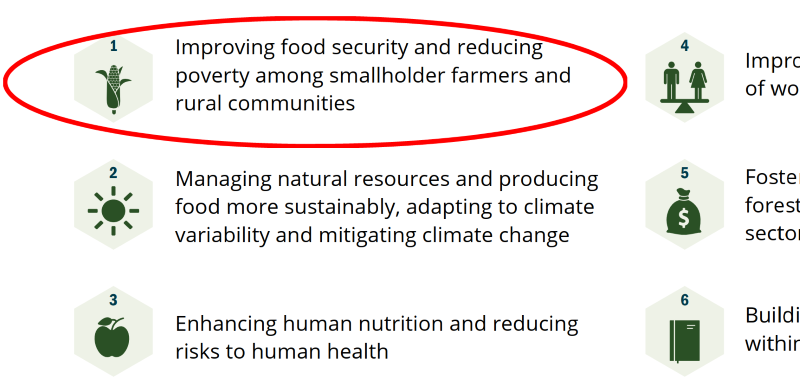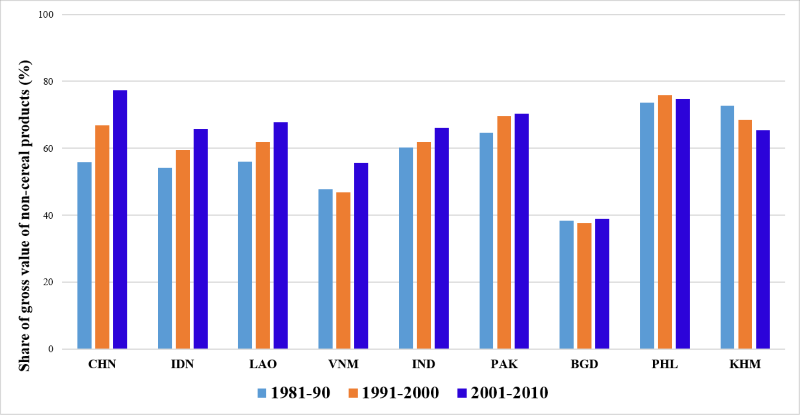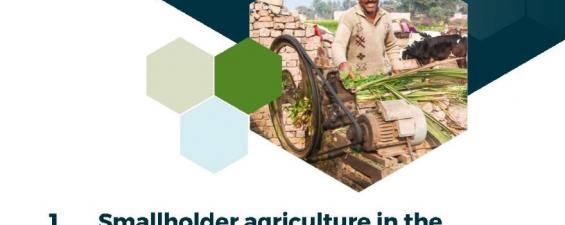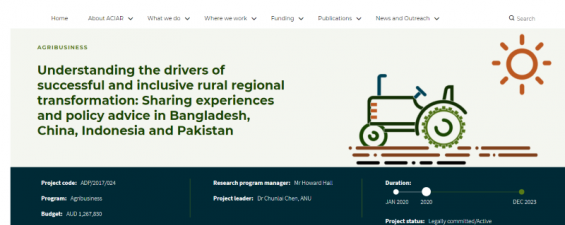All developing countries experience rural transformation, where rural economies become less based on subsistence or low-value crops and more diverse. Migration drives urban growth and this in turn creates new opportunities for higher value crops. Government policies related to markets and infrastructure have a key role to play. ACIAR’s international networks provide great opportunities for different partner countries to share policy ideas and approaches.
One of the objectives of ACIAR’s Ten year Strategy is Improving f ood security and reducing poverty among smallholder farmers and rural communities. Progress relies on strong country-to-country partnerships which provide all-important local context. This is essential at the micro level to guide technical solutions in the context of local social and cultural factors.
ood security and reducing poverty among smallholder farmers and rural communities. Progress relies on strong country-to-country partnerships which provide all-important local context. This is essential at the micro level to guide technical solutions in the context of local social and cultural factors.
However, at the macro level, Pakistan’s rural economy is transforming over time in several ways. Understanding this change process can help ensure that ACIAR’s work is forward-focused and can also help identify policy options to be considered by governments.
Several previous policy projects have studied different aspects of the changing rural sector. A new project commenced in 2020 brings together researchers from several countries to study the stages of rural transformation in China between 1978 and the present day.
"lifting agricultural productivity in ways that help smallholders to access higher-value markets is a among the most effective forms of international development for reducing poverty and catalysing economic growth" United States Agency for International Development 2017
Understanding the drivers of successful and inclusive rural regional transformation: Sharing experiences and policy advice in Bangladesh, China, Indonesia and Pakistan ADP/2017/024
Agriculture plays an enormous role in Pakistan’s economy. However, as in other developing countries, Pakistan’s rural regions have much higher poverty levels than its urban areas. This is in stark contrast to its neighbour, China, where rural poverty has declined from 98% to zero between 1978 and 2020. Studies have shown that this occurred in a series of stages.
One key factor in China was that off-farm employment increased for men and women – 60% via migration and 40% via local off-farm employment (including increased service sector due to more diverse rural economy)

Another key factor is that non-cereal products (or high-value commodities) increased their share of production value. The demand for the higher-value products came from higher incomes in both urban and rural areas.
These factors are already in play in Pakistan and the other economies under study. They are driven in part by market forces, in part by technology and population shifts and are also influenced by government policy. The project has a particular focus on the influence of institutions, policies and investments (IPIs) since these can be influenced by government.
For example, improved transport infrastructure and access to well-managed markets open up more options for economic activity. Both governments and the private sector are involved in ICT infrastructure and services, which have a major role to play in rural transformation.
It will be very useful for policymakers to understand whether similar stages of transformation are underway and what is the rate of change, comparing notes between different countries. Importantly, these changes are likely to raise sociological issues arising from family separation and employment opportunities for women. These will be considered by social research experts in the various country teams.
Project Outcomes
- Building greater capacity of research partners with respect to the ways of thinking about the process or rural transformation.
- Developing a better understanding of the differential impacts of rural transformation and hence the crucial support needed to promote inclusive, secure and sustainable development.
- Developing a better understanding of the institutions, policies and investments that support success in rural transformation.
- Creating some immediate impacts on the pace of transformation, particularly associated with policy reform.
This project analysed the challenges faced by smallholder agriculture in Pakistan, studied the experiences of other countries, and recommended the policies needed to transform the sector. It concludes that Pakistan has the potential to become a substantial exporter—of dairy, citrus and mango products, for instance—to the rapidly growing countries within Pakistan’s region. Moreover, smallholder farmers could play a key role in this expansion, according to the evidence presented.
Detailed economic and market analysis has underpinned extensive consultation with provincial and national policymakers. The result is a robust policy framework, complete with detailed advice on how to implement an integrated approach to transform smallholder agriculture.



